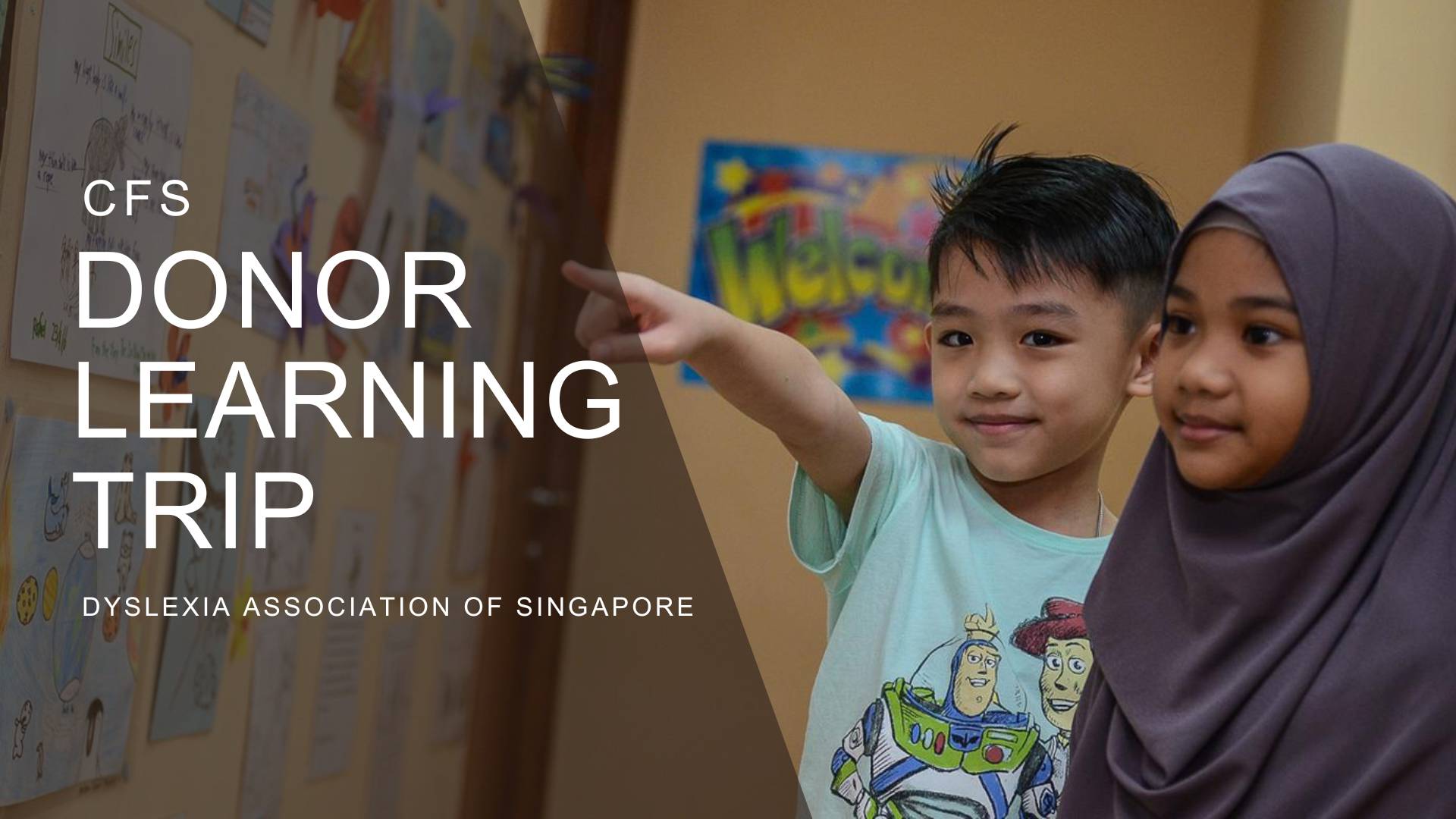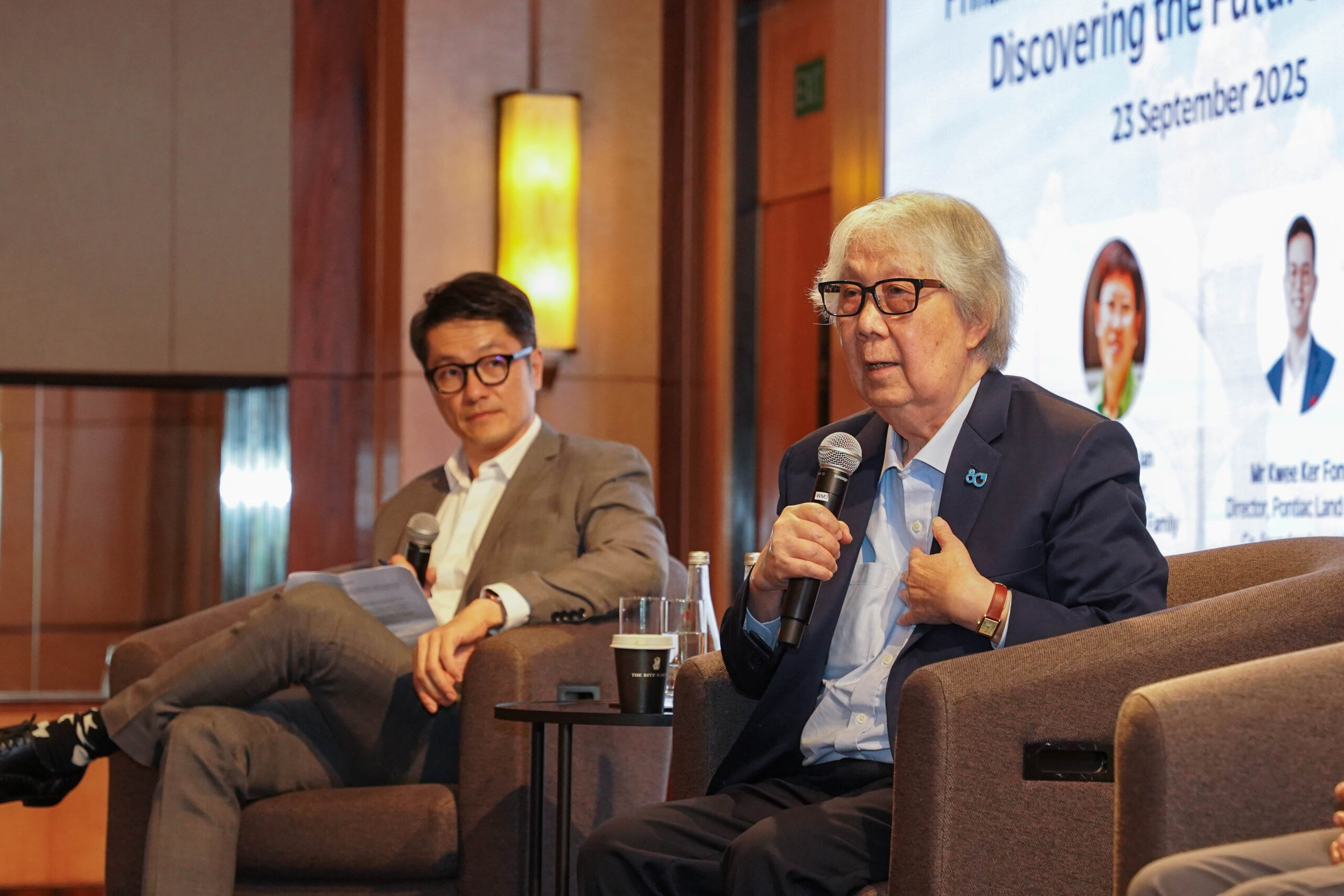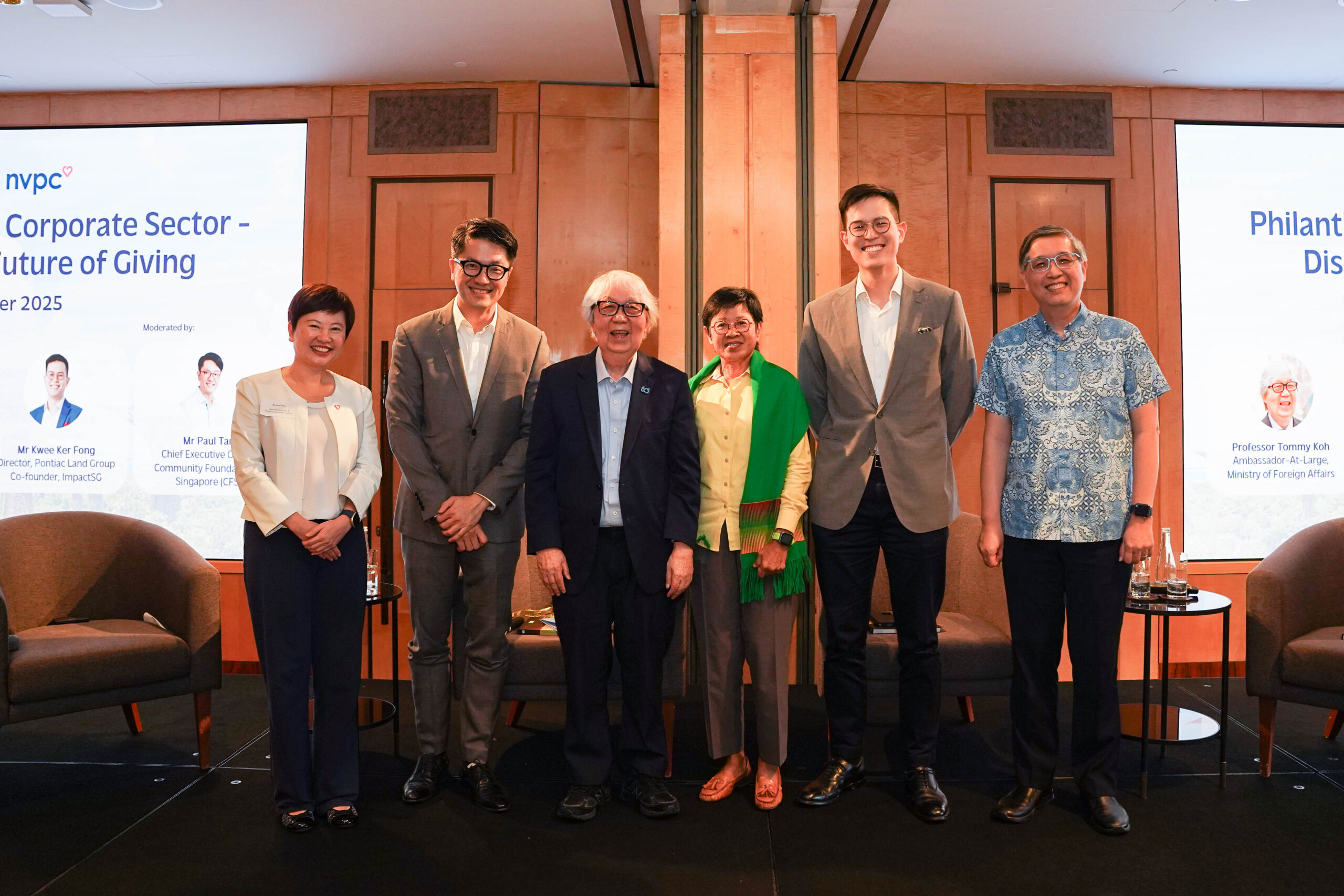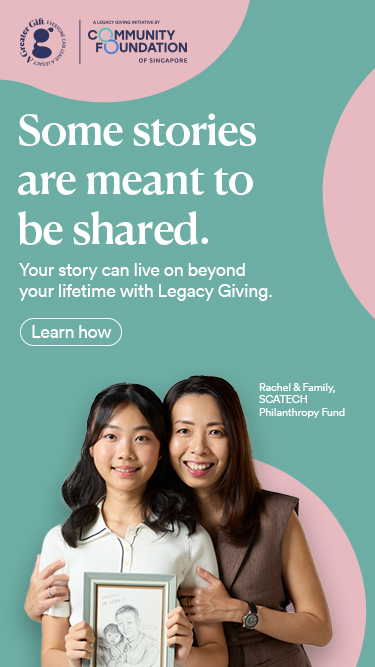CFS Donor Learning Trip Series: The transformative power of early intervention by the Dyslexia Association of Singapore


This initiative is part of CFS’s Donor Learning Trips, a series of engagement opportunities that enable donors to personally connect with charities and gain insights into how they support communities in need.
Imagine not being able to read because the letters and words are mixed up. Imagine struggling to spell or write, being labelled slow and falling behind at school. These are the realities students with dyslexia face, realities that empathetic donors from CFS got to better understand during a visit to the Dyslexia Association of Singapore (DAS).
“It was an eye-opening experience that left a lasting impact on us,” said Mr Sim Willing, President of the IFPAS Love Fund. The IFPAS Love Fund is one of four donor-advised funds (DAFs) that joined our Donor Learning Trip in July 2023 to the DAS Learning Centre at Serangoon Central. The social service organisation provides dyslexia screenings, psychological assessments and remediation.
Accessing Quality Education is one of CFS’s five focal areas for grantmaking, where we curate programmes that ensure everyone has access to quality, holistic education and opportunities for them to function and thrive academically.
During the visit, donors had the valuable opportunity to hear from and talk with DAS Vice-Chairman Mr Kevin Kwek, DAS CEO Mr Lee Siang, Senior Specialist Psychologist Ms Scarlett Leong and other staff members.
One key takeaway for our donors was that dyslexia is more common than they thought. Dyslexia is a neurological condition where the brain is wired to handle information differently. It is lifelong and tends to be hereditary. Studies indicate that it affects around 10% of the population, 4% severely.
In Singapore, there are an estimated 20,000 students with dyslexia severe enough to need intervention, says Mr Lee. Children with dyslexia, moreover, may also have co-occurring difficulties. These include problems with memory, attention, time management and sequencing. DAS currently serves around 3,500 preschool, primary and secondary school students across 12 centres.
Poverty significantly compounds the challenge for students with learning difficulties. Undiagnosed children who slip through the cracks find it hard to break out of poverty. As Mr Lee points out, “International research suggests that 30-60% of prison populations may have dyslexia. Specialist intervention can help break a vicious cycle for those with special needs.” At DAS, 52% of its students come from lower-income families. This is where intervention—supported by donor generosity— can be transformative.
Intervention requires significant resources. DAS gets some funding for screenings but none for psychological assessments. Such assessments are crucial to ascertain if a child has a learning difficulty, its severity and to identify areas of learning needs. Each assessment must be carried out by a highly trained psychologist and takes considerable time, making it costly. This can put it out of reach of the less well-off.
To bridge this gap, DAS collaborates with like-minded partners like CFS. For the charity, CFS has been critical in bringing in donors such as the IPFAS Love Fund. Their grants directly help children from lower-income families access this much-needed service.
IFPAS set up the IFPAS Love Fund in 2017, choosing CFS for its strong track record in managing charitable funds. “A dedicated advisor at CFS takes the time to understand our giving goals and guides us to make well-informed decisions on where to direct resources for maximum effect. Administration is also easy as CFS handles legal and financial compliance, fund management, and grant distribution,” adds Mr Sim
As our relationship with CFS has grown, so has the depth and breadth of our giving. Over time, we have gained a better understanding of social issues and community needs, and CFS has played a pivotal role in keeping us updated on emerging trends and impactful projects. This ongoing learning process has led to the evolution of our giving strategies, allowing us to be more strategic, responsive, and effective in addressing the changing needs of the community.
Sim Willing, President of IFPAS Love Fund
Dyslexia is a hidden disability but with timely intervention, many can go on to contribute significantly to society. Through targeted and thoughtful philanthropy, we can extend professional support to more children with dyslexia, allowing them to reach their full potential and lead more fulfilling lives.
CFS assists charities and their underprivileged communities by connecting them with donors seeking to support causes and crucial needs that resonate with them deeply.
To find out more about the causes we support, please visit cf.org.sg/what-we-support/.
This initiative is part of CFS’s Donor Learning Trips, a series of engagement opportunities that enable donors to personally connect with charities and gain insights into how they support communities in need.
Imagine not being able to read because the letters and words are mixed up. Imagine struggling to spell or write, being labelled slow and falling behind at school. These are the realities students with dyslexia face, realities that empathetic donors from CFS got to better understand during a visit to the Dyslexia Association of Singapore (DAS).
“It was an eye-opening experience that left a lasting impact on us,” said Mr Sim Willing, President of the IFPAS Love Fund. The IFPAS Love Fund is one of four donor-advised funds (DAFs) that joined our Donor Learning Trip in July 2023 to the DAS Learning Centre at Serangoon Central. The social service organisation provides dyslexia screenings, psychological assessments and remediation.
Accessing Quality Education is one of CFS’s five focal areas for grantmaking, where we curate programmes that ensure everyone has access to quality, holistic education and opportunities for them to function and thrive academically.
During the visit, donors had the valuable opportunity to hear from and talk with DAS Vice-Chairman Mr Kevin Kwek, DAS CEO Mr Lee Siang, Senior Specialist Psychologist Ms Scarlett Leong and other staff members.
One key takeaway for our donors was that dyslexia is more common than they thought. Dyslexia is a neurological condition where the brain is wired to handle information differently. It is lifelong and tends to be hereditary. Studies indicate that it affects around 10% of the population, 4% severely.
In Singapore, there are an estimated 20,000 students with dyslexia severe enough to need intervention, says Mr Lee. Children with dyslexia, moreover, may also have co-occurring difficulties. These include problems with memory, attention, time management and sequencing. DAS currently serves around 3,500 preschool, primary and secondary school students across 12 centres.
Poverty significantly compounds the challenge for students with learning difficulties. Undiagnosed children who slip through the cracks find it hard to break out of poverty. As Mr Lee points out, “International research suggests that 30-60% of prison populations may have dyslexia. Specialist intervention can help break a vicious cycle for those with special needs.” At DAS, 52% of its students come from lower-income families. This is where intervention—supported by donor generosity— can be transformative.
Intervention requires significant resources. DAS gets some funding for screenings but none for psychological assessments. Such assessments are crucial to ascertain if a child has a learning difficulty, its severity and to identify areas of learning needs. Each assessment must be carried out by a highly trained psychologist and takes considerable time, making it costly. This can put it out of reach of the less well-off.
To bridge this gap, DAS collaborates with like-minded partners like CFS. For the charity, CFS has been critical in bringing in donors such as the IPFAS Love Fund. Their grants directly help children from lower-income families access this much-needed service.
IFPAS set up the IFPAS Love Fund in 2017, choosing CFS for its strong track record in managing charitable funds. “A dedicated advisor at CFS takes the time to understand our giving goals and guides us to make well-informed decisions on where to direct resources for maximum effect. Administration is also easy as CFS handles legal and financial compliance, fund management, and grant distribution,” adds Mr Sim
As our relationship with CFS has grown, so has the depth and breadth of our giving. Over time, we have gained a better understanding of social issues and community needs, and CFS has played a pivotal role in keeping us updated on emerging trends and impactful projects. This ongoing learning process has led to the evolution of our giving strategies, allowing us to be more strategic, responsive, and effective in addressing the changing needs of the community.
Sim Willing, President of IFPAS Love Fund
Dyslexia is a hidden disability but with timely intervention, many can go on to contribute significantly to society. Through targeted and thoughtful philanthropy, we can extend professional support to more children with dyslexia, allowing them to reach their full potential and lead more fulfilling lives.
CFS assists charities and their underprivileged communities by connecting them with donors seeking to support causes and crucial needs that resonate with them deeply.
To find out more about the causes we support, please visit cf.org.sg/what-we-support/.
- Related Topics For You: ACCESSING QUALITY EDUCATION, CHARITY STORIES, CHILDREN, DONOR STORIES, DONOR-ADVISED FUND, EDUCATION, EVENTS, PERSONS WITH DISABILITIES, VIDEO, YOUTH



